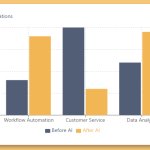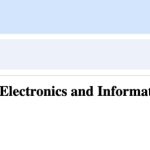Hustler Words – Spotify, renowned for its music streaming dominance, is quietly building a significant developer tooling empire. Its open-source project, Backstage, launched in 2020, has quietly amassed over 2 million developers across 3,400 organizations, including industry giants like Airbnb, LinkedIn, and American Airlines. This isn’t just a side project; it’s a strategic move with considerable momentum.
Backstage acts as a central hub, streamlining the often chaotic landscape of internal developer portals (IDPs). It integrates all tools, applications, data, services, APIs, and documentation into a single, unified interface. Need to monitor Kubernetes, check cloud costs, or review CI/CD status? Backstage handles it all. The Cloud Native Computing Foundation (CNCF) recognized Backstage’s rapid growth and activity, ranking it among its top five projects in 2022. This success is fueling Spotify’s investment in Backstage, with premium tools and services on the horizon.

Spotify’s initial offering of Backstage is free, including a range of open-source plugins. However, the company began offering premium plugins in 2022, such as Backstage Insights, providing data on Backstage usage within an organization. Last year marked a significant shift with the beta launch of Spotify Portal for Backstage—a fully managed SaaS solution designed for companies lacking the resources or desire to manage the setup themselves. This "Backstage in a box" approach is nearing general availability, with key partners like the Linux Foundation and PagerDuty already on board.

Related Post
Tyson Singer, Spotify’s head of technology and platforms, highlighted the unexpected breadth of Backstage’s appeal. Initially targeting large enterprises, Spotify discovered that smaller companies also benefit from its organizational capabilities. The hosted version simplifies implementation significantly.
Further bolstering the premium offering, Spotify showcased new Portal plugins at KubeCon, including AiKA, an AI-powered knowledge assistant. Initially developed internally, AiKA boasts 25% weekly usage among Spotify’s workforce, streamlining internal knowledge access and reducing reliance on support channels. The system’s design encourages employees to maintain up-to-date documentation, creating a positive feedback loop. An alpha version of AiKA is slated for imminent third-party release.
Beyond Backstage, Spotify is exploring monetization opportunities for Confidence, its A/B experimentation platform. While currently in stealth mode, Singer confirmed select customers are already paying for access, with plans to reveal more later this year. Potential synergies between Confidence and Portal, possibly through a feature-flagging plugin, are also on the horizon.
Spotify’s journey into developer tooling is rooted in its past experience with Helios, its internal container orchestration platform. While open-sourced, Helios ultimately lost out to Kubernetes. This experience fueled the creation of Backstage, aiming to establish it as the industry-standard IDP and prevent a similar costly migration in the future.
The monetization strategy isn’t just about covering costs; it’s about capitalizing on the value Spotify has built internally. By offering premium features and services, Spotify aims to ensure Backstage’s long-term success and solidify its position in the developer tooling market. This isn’t just a side hustle; it’s a strategic play to establish a new revenue stream and secure a critical piece of its internal infrastructure.









Leave a Comment